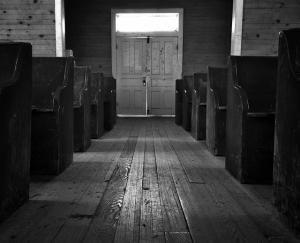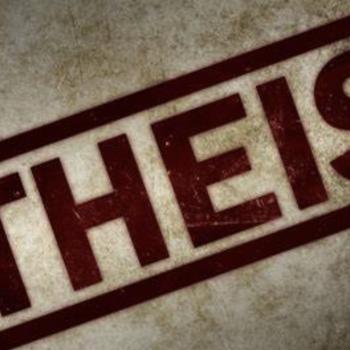The past week has been eye opening. Not only is the world more aware than ever of the scope and severity of child abuse and its attending coverups – but we have seen some truly dreadful reactions from Catholic bishops, clergy, and commentators. Here are some of the worst.
Let’s not forget that we only know about these abuse cases because of the hard work done by journalists (particularly in Boston) and government officials (particularly in Pennsylvania). We owe them. Big time.
2. Let’s launch a PR site to save face.
No. Let’s not.
Not scapegoating people is important here – yet, as Rebecca Bratten Weiss has pointed out, the whole point of a scapegoat is that blame is placed on someone innocent. Placing blame on the guilty is justice. Placing responsibility on the incompetent is justice.
However, speaking of scapegoats…
4. It’s contraception and the rejection of Humanae Vitae.
Cool story, bro. But we aren’t talking about the behavior of the laity.
But maybe…
5. It’s the gays.
This argument has appeared in multiple places and in multiple forms. However, let’s focus in particular on the statement by Bishop Morlino of Madision, Wisconsin. That Bishop Morlino blames homosexuality for pedophilia is bad enough, but he also offers this statement: “For too long we have diminished the reality of sin — we have refused to call a sin a sin — and we have excused sin in the name of a mistaken notion of mercy. In our efforts to be open to the world we have become all too willing to abandon the Way, the Truth, and the Life. In order to avoid causing offense we offer to ourselves and to others niceties and human consolation.”
Bishop Morlino may not be aware of this, but the general population has no problem calling pedophilia a sin. As far as most people, secular and religious, are concerned, there is no greater evil. Although there may be widespread acceptance of homosexuality, contraception, abortion, and casual sexual encounters, most people have no problem condemning pedophilia in no uncertain terms.
This hamfisted attempt to place responsibility on homosexuals and on a laity accepting of homosexuality only reinforces the perception that it is specifically the bishops who have diminished the reality of the specific sin of child abuse.
Sexual assault is violence. If you can’t tell the difference between sexual assault and having sex, you have a problem.
7. There have been almost no new cases since 2002.
Is this supposed to make us feel better when, yes, there have been cases, and many of the bishops responsible for cover-ups before and after 2002 still have power over which priests are still in active ministry in our parishes?
8. Victims should be ashamed to accuse the clergy because of the skeletons in their own closets.
This is on the short list of nastiest things a person could say.
9. The statement from the USCCB.
It would be nice if this document inspired more confidence.
It reads: “The third goal is to advocate for better procedures to resolve complaints against bishops. For example, the canonical procedures that follow a complaint will be studied with an eye toward concrete proposals to make them more prompt, fair, and transparent and to specify what constraints may be imposed on bishops at each stage of that process.”
Despite claims to transparency, the phrase “canonical procedures” is alarming. This proposal seems to continue to keep problematic circumstances “in house.” It does not commit to involving outside auditors or laypeople in canonical procedures. It does not specify who will be privy to the “transparency” cited. According to this action item, the bishops remain a group of people set apart.
In the same vein, the document declares that “The second criterion relates to authority in the Church. Because only the Pope has authority to discipline or remove bishops, we will assure that our measures will both respect that authority and protect the vulnerable from the abuse of ecclesial power.”
Although the document claims that it will collect a group of laypeople together and guarantee them independence and authority, this sentence reaffirms that only the pope can remove and discipline bishops. The laypeople involved in this venture will in fact have no authority. This sentence makes it clear that the bishops do not intend to make themselves subject to the committee they are forming.
***
What is the point of this round-up? To demonstrate that there are a lot of bishops who still don’t get it. To make it clear that there are Catholic organizations and individuals who will still back them up. To make it clear that the bishops are still committed to blaming anyone but themselves, and to keeping themselves free from the consequences of their actions, both now and in the future.












